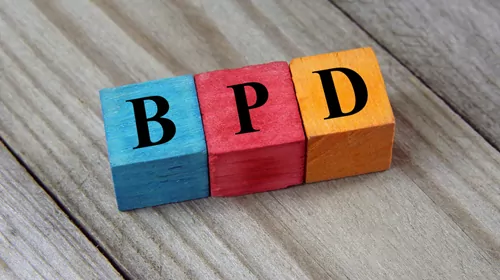If you have a narcissist in your life – whether it’s a partner, boss, parent, friend or sibling – it can be incredibly draining on your time, energy and confidence levels.
Narcissists can be initially charming and a pleasure to be around, going out of their way to make you feel special and adored – especially if they want something from you. However, if you dare to anger or disappoint them, they can fly into a spiteful rage and turn your life into a misery, making you feel like the bad guy. The narcissist can turn the charm back on, when it suits, leaving you feeling insecure and wondering where you stand.
Our article on how to spot a narcissist explains that the narcissistic traits of grandiosity, entitlement, manipulation and lack of empathy stem not from an over-inflated sense of themselves but from a feeling of inferiority and shame. Narcissists, deep down, feel ‘less than’ because their true self was never acknowledged or validated as a child. They create a false self to survive childhood, and that false self takes all their energy to maintain once they’re grown up. They identify with the false self to such an extent that narcissists will lash out at anyone who sees beneath the veneer they’ve spent so long creating and polishing.
So, with that in mind, how best can you cope with the demands of a narcissist in your life? How can you sustain a relationship with someone so oblivious to anyone’s needs apart from their own – without losing your sense of self?
Here are our tips, based on our understanding of how narcissists function:
Admire them
Narcissists love to be admired and adored. So, to cope with one in your life, validate what they’re attempting to do with their lives. Encourage their ideas, their goals, their needs and their wants. Don’t dismiss their dreams, as this may have happened to them while younger.
Give them your full attention
Let narcissists talk about what they want, at length. Be present, be attentive, be interested. Affirm how wonderful they are. Once they have all the attention then you have one happy narcissist.
Always put them first
In a narcissist’s world, it’s all about ‘me, me, me’. Open doors for them, put them at the top table, give them first choice, and lay out the metaphorical red carpet wherever they go. They need to be treated like number one to make up for being ignored or invalidated when really young.
Agree with a narcissist
They say you should pick your battles, and this is so true when it comes to narcissists. Disagree with a point they’re making and they will take it personally. They struggle to separate behaviour and opinions from who they are, and so any disagreement with their beliefs will be taken as a direct attack on themselves.
Take care of your own appearance
This is for you as much as for them. Narcissists carry a lot of shame. Deep inside they do not feel good enough, so they constantly look to things outside themselves to make them feel good. They want a beautiful-looking partner, swish clothes, posh car, immaculate house, top-of-the-range toys. They need a strong external life to make up for an inner life that is fragile.
Don’t react to their rages
When triggered and they descend into a rage (usually an outrage at someone letting them down) think of narcissists as having the emotional level of a toddler in the middle of a ‘terrible twos’ tantrum. How would you respond with a toddler? You would let the rage run its course, let it subside, and then be a soothing voice at the end to calm them down emotionally. Don’t become combative, as that will just fuel the rage.
Walk away
The thing a narcissist fears above all is rejection of the image he/she presents to the world. If it becomes too much to give the attention and adulation your narcissist needs, take some time out for your own peace and resilience.
After reading these tips, you may feel equipped to handle the narcissistic moments of your nearest and dearest. We’ve aimed to offer coping strategies for you, if at least to avoid provoking a narcissistic rage. However, if the narcissist in your life is causing you to lose your own sense of who you are, and is knocking your confidence, then book an appointment with one of our therapists who can help you explore issues around a dynamic that can sometimes feel depleting and toxic.
Call 020 8673 4545 or email [email protected].








2 Comments. Leave new
Just as you will not let an unruly toddler run your home neither should you let a toddler in an adult body rule your home stand up for yourelf and kick them out.
Hi Barry. Thanks for stopping by to comment on our blog post. You’re right about a narcissist being like a toddler in an adult body. Establishing and maintaining your personal boundaries is one of the key ways to deal with a narcissist in your life – otherwise they can send you reeling. Take care. Best wishes, Karen